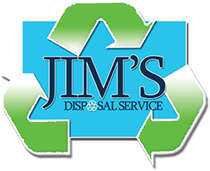Recycling: A Step Towards a Sustainable Future
Introduction
As inhabitants of this beautiful planet Earth, it is our shared responsibility to nurture and safeguard our environment. One of the most effective ways we can contribute to this cause is by embracing recycling. Recycling is a crucial factor in combating waste and has the potential to dramatically reduce our reliance on landfills. In this post, we will delve into the importance of recycling, best practices, and the benefits it brings to both us and our environment.
The Importance of Recycling
Recycling is more than just a good habit; it's a necessity in our modern world. Each year, billions of tons of waste end up in landfills, contributing to environmental pollution and depleting our natural resources. The process of recycling helps mitigate this problem by turning used materials into new products, reducing the need for fresh raw materials.
Recycling also helps conserve energy. It takes significantly less energy to process recycled materials than it does to extract, transport, and process new materials. Furthermore, recycling helps combat global warming by significantly reducing the amount of greenhouse gas emissions produced in the processing of new materials.
Best Practices for Recycling
Knowing the right way to recycle is as important as recycling itself. Here are a few best practices to follow:
Know What to Recycle: Not all waste is recyclable. Familiarize yourself with the items that can be recycled in your area. Common recyclables include aluminum cans, plastic bottles and containers, office paper, newspapers, cardboard, and more.
Clean Before Recycling: Ensure all recyclables are clean before you put them in the recycling bin. Rinse out containers, jars, and bottles to prevent contamination.
Don’t Bag It: Most recycling facilities prefer items loose and not bagged. Bagged recyclables can lead to processing problems at recycling facilities.
Reduce and Reuse: Remember, recycling is just one part of the waste management hierarchy: Reduce, Reuse, and then Recycle. Always look for ways to reduce your consumption and reuse items before resorting to recycling.
The Benefits of Recycling
Recycling benefits us and our planet in several ways:
Conserves Natural Resources: By recycling, we reduce the need for raw materials, thereby helping conserve our natural resources such as timber, water, and minerals.
Reduces Landfill Waste: Recycling turns waste into valuable resources, thereby decreasing the amount of waste that ends up in our landfills and incinerators.
Saves Energy: Manufacturing products from recycled materials typically requires less energy than producing the same product from virgin materials.
Economic Impact: Recycling not only conserves resources and energy but also generates jobs. The recycling industry creates jobs in collecting, processing, and manufacturing products from recycled materials.
Conclusion
Recycling is a simple act with a significant impact. It's an effective way to protect our environment and conserve our natural resources. By making recycling a part of our daily routine, we are taking a step towards a sustainable future. Remember, every small effort counts and collectively, we can make a huge difference.
At Jim's Disposal Service, we strongly advocate for responsible waste management. We are proud to provide residential recycling services in Kansas and Missouri, empowering our customers to contribute to a healthier planet. Visit our website to learn more about our services and how you can make a difference today.
Let's all make a commitment to recycle more and contribute to a cleaner, healthier, and more sustainable world for generations to come. Remember, the earth is in your hands!
